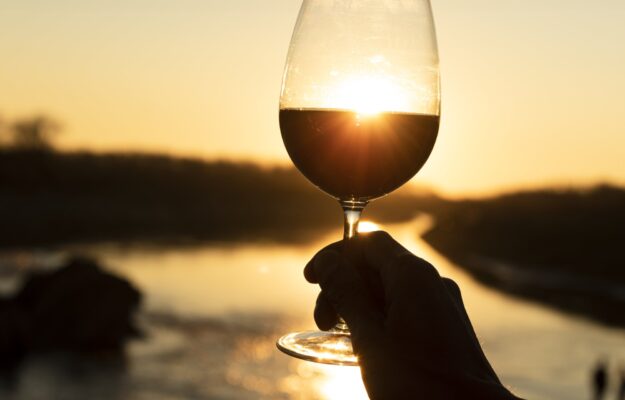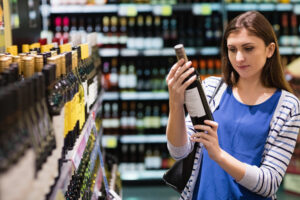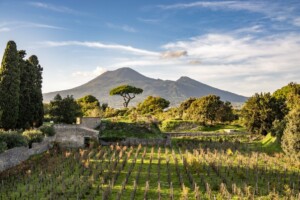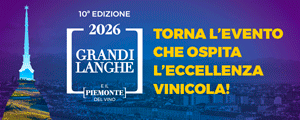The reform of PDOs and PGIs that also affects wine, which is expected to close by October 24 under the Spanish presidency; the issue of Irish heath warnings that, beyond the direct damage to wine and spirits in general, represent a vulnus to the rules of the single market; the Ocm Vino resources, their use and effectiveness, somewhat undermined by Italian bureaucracy on the one hand, and questioned, in another way, at the EU level; but also a directive on packaging and reuse of packaging that hopefully will not go through and will be revised, because according to many it would create more damage (including environmental) than benefits, as well as some regulations on plant protection products in agriculture, but also the obligation of nutritional indications on the label, which will come into force from December 8, and which seemed to be solved with the “Qr code” and digital, and instead is being questioned again; and again, the return of the issue of the “no safe level” of alcohol consumption, which does not distinguish between abuse (to be combated) and moderate and conscious consumption (to be publicized), which returns to hover like a specter never tamed over a sector that, as it was reminded once again, by all, is tradition, history, culture, economy, quality, territory, innovation, research and much more. It is a sea of rough waters, for the ship of European wine, the one outlined in the “States General” of wine, today in Rome, a confrontation between representatives of government, EU institutions, regions and stakeholders, wanted by the Representation in Italy of the European Parliament and the European Commission (also in view of the electoral campaign for the European round of 2024), where many issues were put on the plate, by MEPs, representatives of the Italian wine supply chain (from Albiera Antinori for Federvini to Lamberto Frescobaldi for Unione Italiana Vini - Uiv, from Luca Rigotti for Allenza delle Cooperative to Lorenzo Cesconi for Federazione Italiana Vignaioli Indipendenti - Fivi, to Riccardo Cotarella - Assoenologi, to Massimiliano Giansanti and Ettore Prandini, leaders of Confagricoltura and Coldiretti, respectively, among others), in a meeting opened by the Minister of Agriculture, Francesco Lollobrigida, who, among other things, also announced an allocation of 7 million euros, in addition to the one already on the plate, to help companies affected by downy mildew.
“Wine must be defended; it is part of our culture, as I was also able to experience firsthand when visiting the Lungarotti family’s wonderful Wine Museum in Torgiano. We must look to the future, and it is no coincidence”, Lollobrigida said, “that we have accelerated on Tea experimentation, for resistant vines, just as we must improve on promotion. We have received criticism for the CMO call and for the issue of the presentation of three estimates for each action (which, according to the president of the Doc Sicilia Consortium, Antonio Rallo, “due to the fear of sanctions whose mechanisms and scope are not yet known, for that matter, has limited the investments of both companies and consortia”, ed.) I answer that we have worked under the sign of transparency, because if not we risk losing resources in Europe, but I also say that we are pragmatic, and if for an action you cannot present three estimates because three suppliers are not there, the contribution comes anyway”. Argument that did not convince more than a little, but was lost among the many issues, important ones, put on the plate.
Starting with the recent report of the EU Court of Auditors on the effectiveness, in environmental terms, of the CMO Wine resources, whose conclusions were unanimously criticized (as reported here) but not only. “We’ve had a difficult time”, said, for example, MEP Herbert Dorfmann, a member of the Agriculture Commission, “we got over the alarm on the Beca commission, in the framework of the fight against cancer, where there was no distinction between alcohol use and abuse, but now other commissions on the topic of health are back on this issue. And related to that, on the Irish healt warnings, which will be discussed again in the legislature starting in 2024, I say that the real risk is not so much Ireland, but that other countries will follow its example, jeopardizing the image of wine and not only that, but above all the tightness of the rules of the single market”.
Another issue that seemed outdated, and is now being brought back into question, in the framework of the reform of the regulations on PDOs and PGIs, is that of the role of Euipo in terms of changes to specifications, as recalled by Federdoc president Giangiacomo Gallarati Scotti: “we are at the finishing lines with a good synthesis, also thanks to the work of the rapporteur Paolo De Castro, but now it seems that the Commission wants to go back to things already settled for us, the role of Euipo, which for us has no capacity to intervene in the system of designations, and on which we want there to be exclusive competence of the Commission. We also safeguard the specificities of the Wine CMO, and we work on the issue of promotion, which must be continuous”. “This in Europe is an important moment, not only for the reform of the PDO and PGI regulations”, said Paolo De Castro himself, who is its rapporteur, “the situation is not easy for cultural reasons, Northern Europe has a different approach to alcohol consumption from ours, Mediterranean, and wine in particular is not under attack, but also beer, of which Ireland is a large consumer and producer, and all spirits, because a different consumption model is being fought. And there are so many pitfalls even on issues that seemed closed. For example, on the issue of labeling and nutritional values, where it had come down to the “Qr code” and digital to avoid a thousand writings, moreover to be translated into many languages, on the label. Now the latest guidelines that the Commission is working on could go back and say that the “Qr code” is not enough, and that scares us a lot. In general”, De Castro says, “there is pressure on alcoholic products, and also on wine. At a time when, moreover, the market is not doing very well. But wine remains a fundamental sector, economically and also environmentally, and we must continue to invest, and I hope we will all push on Tea. On the issue of the reform of the regulation on PDO and PGI we are working well, we hope to close by October, under the Spanish presidency, there are many improvements, from simplification, to the role of consortia, to the non-overlapping of designations to traditional mentions as in the Prosek case, and more”.
But there are many other issues on the plate, as pointed out by Confagricoltura President Massimiliano Giansanti. “Wine is an extraordinary sector, our products are in every part of the world, but we have so many challenges to face, starting with a market that is becoming increasingly segmented, with young people increasingly looking to dealcolatized products, even in Canada, for example, where there is talk of guidelines similar to those followed in Ireland. Then there is the issue of climate change: the season we are ending with the grape harvest”, Giansanti said, “is not positive in many respects, but action needs to be taken at the legislative level sooner rather than later, for the adoption of Tea, which, for example, would have made it possible to limit a lot of losses related to peronospera. And then some strategies need to be rethought. In this vintage organic has had many more treatments than conventional, Agrofarma tells us that today with the EU policies of cutting pesticides and pesticides we should reduce wine production by 70%, for example. There is the issue of packaging, which tells us to recover cardboard and bottles in the world: these are all complex things, to be understood and discussed, with common sense, thinking that there is no perfection in the EU and imperfection outside, and that competition is fierce in the markets. We have to reprogram our path, and if we don't do it this year that we are not driven by the euphoria that sometimes makes people overlook the problems, we won’t do it again”.
Which is not easy, in an organization as complex as the European Union, as explained by MEP Nicola Procaccini, a member of the Environment Commission. “Where there is less transversality than in the Agriculture Commission: unfortunately, the Environment Commission is permeated with a stronger ideological component and this makes dialogue and understanding more difficult, and finding common sense syntheses. On the packaging issue, I hope that the measure will not come to an end in this legislature, because I hope that the next one will recover the common sense that has been lost. I think of the risk of losing the achievements on the circular economy, achieving as in the Italian system great results on the issue of recycling, also forcing families to sort: today we say that it is all to be redone, that it is old stuff, not green enough, and that we must go on reuse, which moreover is not always possible and practicable, and often complicated. There are not two views, one pro-environment and one anti-environment. There is a difference between a more ideological environmentalism, which sometimes sees the farmer as a threat to the environment, which is illogical, and a more pragmatic one”.
“I appreciate what MEP Procaccini says, we are a fortunate sector, which, in the last 40 years, has done so much”, stressed Albiera Antinori, at the head of the Gruppo Vino Federvini and of one of the most important companies in Italian wine, such as Marchesi Antinori, “it has brought benefits to companies, but also to territories, economic security for many. But there is an acceleration on wanting to make regulations on regulations, maybe even for the right goal of sustainability, which for us is fundamental because we keep the land for generations, but a regulatory train cannot leave every day, sometimes with incomprehensible things, sometimes without sense. How do you think about recovering 10% of the glass that goes around the world? Or the label: there is the “Qr code”, how do you think that with already printed, paper labels, you can respond better and faster than with digital? And if there is a European plan”, Antinori said, “we don’t forget things on the Italian level. Let’s do the national sustainability certification, the monopolies are asking for it. The digital vineyard cadastre: in 2023 the tools are there. On the promotion part, on the issue of “hree quotes”, I say: if we want to unbureaucratize, let’s do it, because if you continue to create paper, you don't create value, to be redistributed along the supply chain, which is the real and shared goal”. For Ettore Prandini, president of Coldiretti, it is essential that “instead of talking about regional autonomies, we put in place a coordinated national agricultural policy, including in the promotion of wine, on the model of Sopexa of the French”.
“Is excess bad for you? We are ready to work with the Commission for a single claim at the European level, within the wine standard, without resorting to alarmist solutions, Nutriscore or, even worse, letting each member state, decide for itself, as Ireland has done”, said Lamberto Frescobaldi, at the head of the Frescobaldi Group, another "flagship" of Italian wine, and of Unione Italiana Vini (UIV). Who added, "37 billion bottles of wine are uncorked in the world, with demand growing +27% in the last 20 years, it was extraordinary. Now between now and 2035-40 growth will slow down, it will be +7%, we need a moment of reflection. The average age is rising, the culture of the world is changing, the lifestyle is changing, so the growth will be slower, but that doesn’t mean we won’t need timely aid to support the competitiveness of the sector, with adequate resources. There is a very old Italy vineyard, for example, with great management difficulties because of the lack of possibility to use machines, there is a risk of abandonment of some areas. Let’s hope they are not the hilly and mountainous ones, which are also fundamental for safeguarding the territory. Today, with consumption shrinking on a global scale, we reiterate the need to quota production”, Frescobaldi said, “including by reforming the allocation system for authorizations for new plantings: a scattershot distribution of new vineyards totaling nearly 7,000 new hectares per year is no longer acceptable. Instead, authorizations should insist on the most competitive areas, which do not generate stocks and according to serious eligibility and priority criteria, also based on environmental aspects”. On the chapter of wine sustainability, the UIV president urges steps forward at the European level: “we know that the EU Commission is working on a framework standard: this is good news because our sector has the maturity to have a specific European standard on sustainability. At the same time”, Frescobaldi added, “there is also the need to see rules harmonized through a single standard and not - this is the current case in Italy as well - defined according to variegated private norms and standards and equally variegated logos and certifications”.
And while bringing the voice of small producers was Lorenzo Cesconi, president of Fivi (Federazione Italiana Vignaioli Indipendenti - Italian Federation of Independent Winegrowers), “geared by necessity to quality and excellence, with Horeca the only possible channel, and with exports remaining fundamental, because it is market diversification and growth possibilities”, according to Tommaso Battista, president of Copagri, “the wine world is going through a delicate market situation that, particularly in some regions of the country, is causing a slowdown in economic transactions and generating concerns with respect to commercial prospects; this conjuncture, aggravated by the well-known increases in production costs, inflation trends and, above all, the repercussions of downy mildew, is jeopardizing the economic resilience of small and medium-sized companies in the sector”.
Luca Rigotti, head of the Trentino cooperative Mezzacorona, and coordinator of the wine sector of the Alleanza delle Cooperative Italiane and president of the Cogeca Wine Sector Working Group, summed up: “on the subject of Ireland, the serious issue is the damage to the unity of the CMO, the Common Market Organization. We need equal rules for all states”, Rigotti said, “otherwise the work done so far will be in vain: let’s set high standards, but with equal rules for everyone. Then we go back to talking about “no safe level”, in alcohol and wine consumption, and this is not good. We need to work on the culture of moderate drinking. Just as it is not good to put farmers among those who are accused of destroying the environment: it is not true. In the vineyard for years we have been working on sustainability, where there is wine and agriculture, there is economy, there is welfare, there is territory. And we have to think about the future, with more transparency, we have to think about export support, in new markets but also in established markets, where the real numbers are made. I hope that in the future we will build a vision of Italian wine as a healthy product. And we need the single national sustainability certification standard as soon as possible, to distinguish Italian wine internationally”.
The heads of important consortia, such as those of Prosecco Doc and Pinot Grigio delle Venezie, among others, also spoke. Albino Armani, at the head of the latter, emphasized that “the role of the consortium is not only protection and promotion: it must be an incubator of ideas, of sharing multi-year projects, one cannot think of “hysterical”. or annual, punctual goals with 27,000 hectares to manage. Traceability and transparency are key to building value, and that is also why I think we can think about opening up to international mutual control systems: we are not afraid to show others what we do, we are virtuous, but we also want to see what others do”. Luca Giavi, director of the Prosecco Doc Consortium, focused on the issue of international protection, starting with the Croatian Prosek case. “About Proseck, the problem is not the 20,000 Croatian bottles, but the defense of the appellation. Two months ago we were in the Supreme Court in Singapore, the government recognized “Prosecco” as a designation, Australia appealed because it considers it a grape variety, and won the first instance. And the lawyers, in order to win this appeal, also looked at Italian producer sites that still list Prosecco as a variety. So first we have to do our homework. But beyond that, how can we expect a non-EU judge to agree with us when the EU Commission allows a member state to use the term Prosek? The judge will say that first we have to set things right at home. This is an issue that should have been settled already, probably waiting for the new PDO and PGI regulations to direct the issue definitively. And on the market I say, calm down talking about crisis. The numbers are negative, but they should be read in the light of out-of-standard results in 2022, linked to a post Covid euphoria that led to really extraordinary economic results”.
Copyright © 2000/2026
Contatti: info@winenews.it
Seguici anche su Twitter: @WineNewsIt
Seguici anche su Facebook: @winenewsit
Questo articolo è tratto dall'archivio di WineNews - Tutti i diritti riservati - Copyright © 2000/2026
























































































































































































